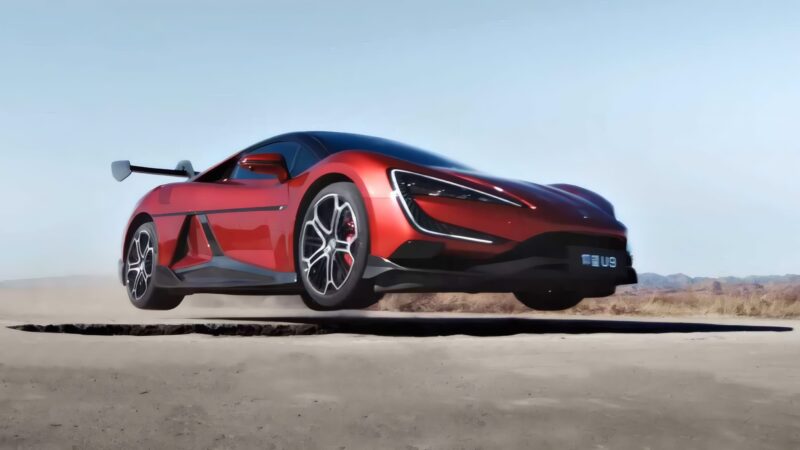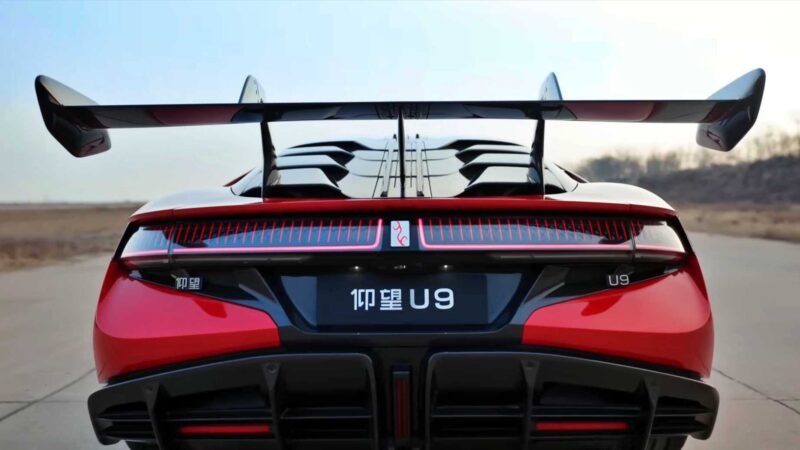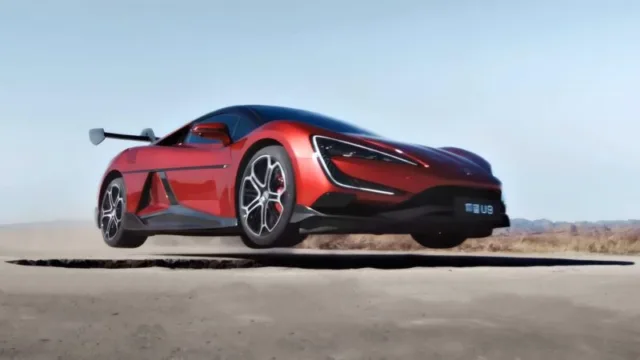Demand for EVs has been in decline globally for over a year, and hybrids may be eating into sales; however, electric cars continue to push the boundaries of performance. Just yesterday, we covered Mercedes-AMG’s GT XX smashing endurance records at Nardò in Italy.
We’ve got yet another EV grabbing the headlines today: BYD’s YangWang U9 Track Edition has set a new world top-speed record for electric vehicles, hitting 472.41 km/h (293.54 mph) at Papenburg’s massive 12.3-kilometer (7.64-mile) oval in Lower Saxony in Germany, where VBOX timing and on-board footage confirmed the 472.41 km/h top speed figure.
This makes the U9 Track Edition the fastest road-legal EV in history, surpassing the Rimac Nevera, which previously held the fastest production EV crown at 412 km/h (256 mph) set in July this year. For some context of how some of the fastest gas-powered models compare, Bugatti’s 490.48 km/h (304.77 mph) Chiron Super Sport 300+ run record in 2019, with Andy Wallace at the wheel, took place at VW’s private Ehra-Lessien track, near the old East German border.
Now, it is worth noting that the U9 is not faster than the absolute electric land-speed record holders, like the Venturi Buckeye Bullet 3, a purpose-built all-electric streamliner, which has a 549 km/h (342 mph) record, set in 2016 on the salt flats of Bonneville in Utah. The difference is that such vehicles are one-off prototypes, and not road-legal hypercars.
But coming back to the U9. Yangwang may not be a household name, but the automaker is the luxury arm of the Chinese brand, Build Your Dreams (BYD). For those unaware, BYD has already surpassed Tesla in global EV and plug-in hybrid sales, thanks to its vast model range and dominance in China. While Tesla sells fewer, higher-margin cars (still waiting on that new-age Roadster announced in 2017), BYD’s scale and vertical integration have already made it the world’s largest maker of electrified vehicles. The YangWang U9 (seen above) is BYD’s flagship hyper-EV under their luxury sub-brand.


The Track Edition is a heavily reworked evolution of the standard U9 that features four 240-kW motors for a combined 1,287 horsepower. The Track Edition upgrades to four TZ240XYA motors, pushing out 3,019 horsepower, and runs on a 1,200-volt electrical architecture and upgraded cooling. It also packs track-focused hardware, including a carbon-fiber roof, a large fixed wing, adjustable diffuser blades, and 20-inch wheels wrapped in wide 325-section tires.
Both versions employ BYD’s individual wheel drive and the viral DiSus-X active suspension that can literally make the car hop. The record-breaking Track Edition is tuned for extreme durability and performance at speed, and even weighs slightly more at just under 6,000 pounds, yet the extra power more than compensates.
Beyond the U9, China continues to make waves in the all-electric space. The Nio EP9 once shocked the world by running a 6:45.9 lap at the Nürburgring as early as 2017, making it the fastest EV on the Green Hell at the time, with two more records at the Circuit of the Americas (COTA) that followed. Then, in June this year, we reported on Xiaomi’s four-door electric sedan, the SU7 prototype, which set a blistering Nürburgring lap time of 6:22.091, not just undercutting Nio but also several established hypercars at the ‘Ring.
For BYD, launching YangWang is about proving that Chinese automakers too can play in the same league as the Bugattis, Koenigseggs, and Rimacs of the world, all at a considerably lower price, of course (starting somewhere between $230,000 and $250,000). These high-speed test runs also validate battery safety, thermal management, and high-speed stability. That translates into better fast charging, more reliable motors, innovation, and tech that should hopefully trickle down to mass-market EVs.
Source: BYD Global









